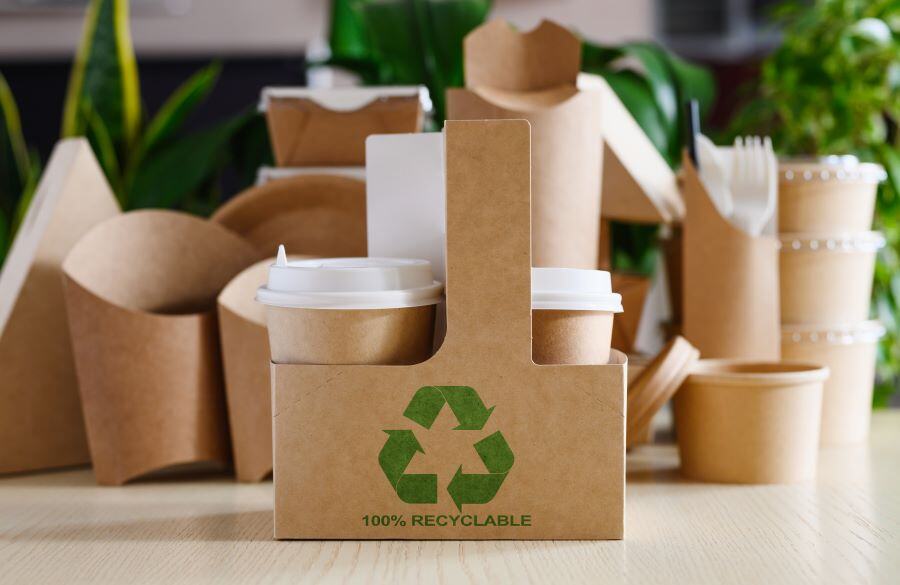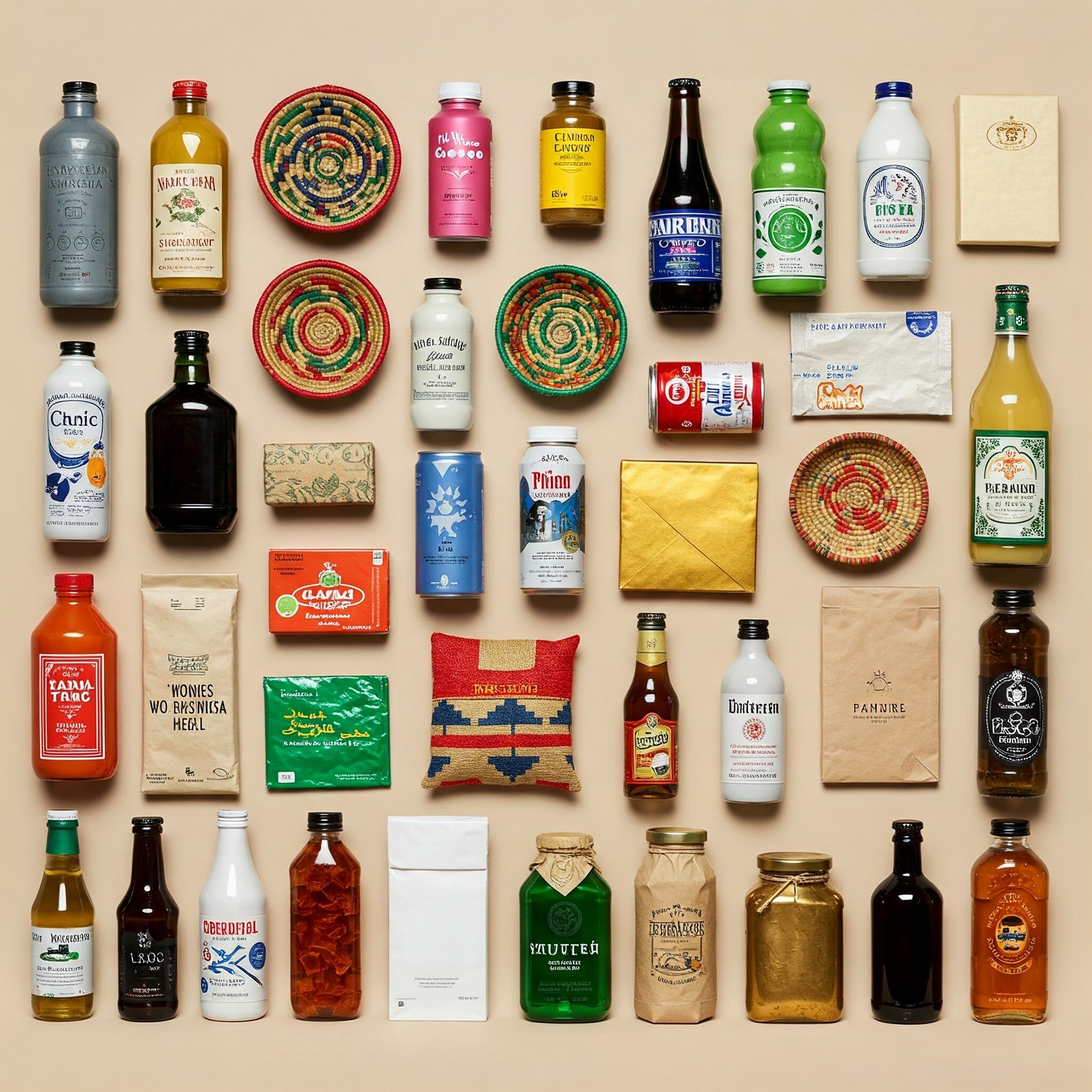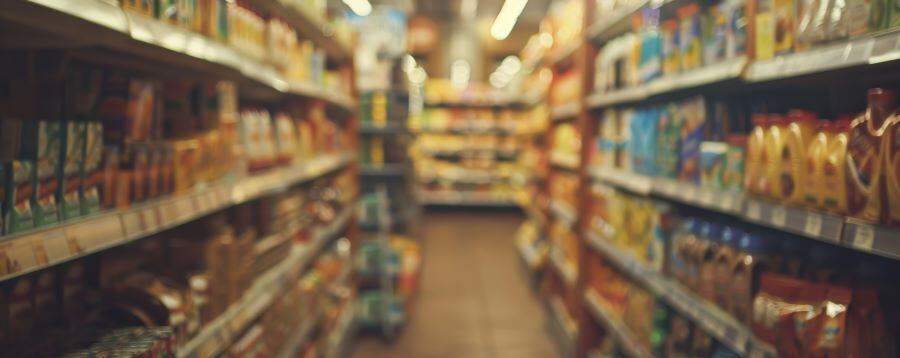Top Trends in Sustainable Packaging
In today’s environment where manufacturers are constantly scrutinized for their commitment to sustainability, companies need to monitor evolving consumer needs and sustainable packaging trends in order to stay competitive.
What is Sustainable Packaging?
Sustainable packaging refers to packaging design that focuses on minimizing negative impacts on the environment, from creation to disposal of the package. Key principles include using materials efficiently, reducing waste, and making choices that benefit the planet.
What Do Consumers Want in Sustainable Packaging?
Consumers around the globe are demanding more sustainable packaging as they seek out purchases that reflect their values.
According to a survey commissioned by Two Sides, 55% of consumers in the US would buy more from brands and retailers who remove plastic from their packaging, compared to just 49% in 2021. Furthermore, nearly half—47%--said they might avoid a retailer that is not actively trying to reduce its use of non-recyclable packaging. Consumers also expressed a preference for paper-based packaging, which they say is easier to recycle or to compost at home.
In Europe, a survey by metal packaging supplier Eviosys shows a similar trend: 57% of consumers would pay a premium for products with sustainable packaging. In fact, 70% would prioritize reusability and recyclability over luxurious or unique packaging designs.
In the Asia-Pacific region, the trend is just as clear: According to a Delta Global study released in 2023, 58% of Gen Z consumers identified non-sustainable packaging and excessive waste among the leading factors that would lead them not to buy a luxury item.
Company Initiatives in Sustainable Packaging
Facing consumer pressures, companies are investing in new technologies and product designs to improve sustainability. Editors at Industry Intelligence Inc noted the following trends:
Plastic Recycling
Although plastic packaging faces competition from the more recyclable alternatives such as paper carton, aluminum and steel containers, plastic sometimes offers underappreciated sustainability advantages.
According to a study led by sustainability consulting firm Denkstatt, plastic packaging for fresh foods offers significant advantages in reducing greenhouse gas due to its generally lighter weight in transportation and its ability to minimize food losses. Consequently, the plastic packaging industry has taken action to create packaging options that are compatible with commonly used recycling systems.
For example, Vetroplas, a provider of cosmetic and personal care packaging, offers an alternative to mixed-material droppers, which are difficult to recycle. Its new pipette style Minerbio Mono plastic dropper has a recycling-ready all-polypropylene composition.
Eco-Friendly Chemicals
The demand for more recyclable packaging is also getting attention from chemical companies.
In a collaboration, major chemical players Borouge and Siegwerk developed a flexible pouch made of high-density polyethylene (HDPE) that is 100% recyclable. Siegwerk’s innovative coatings give the packaging the needed oxygen barrier properties while remaining compatible with recycling systems.
In addition, chemical recycling processes such as pyrolysis is gaining traction. Chemical heavyweights such as LyondellBasell, Dow and Eastman made investments to add chemical recycling capacity to break plastics down at the molecular level.
Biobased Innovations
The shift in the plastics industry extends beyond recycling. There have been substantial efforts to use materials that are biodegradable or compostable.
TotalEnergies Corbion’s recyclable bioplastics made of polylactic acid (PLA) were recently chosen by Korean water producer Sansu for the development of a label-free water bottle.
Europe-based Nissha also introduced a new cosmetics container featuring a biobased and compostable material made by Sulapac, an R&D company with a mission to address growing consumer and legislative demands in Europe with sustainable packaging solutions.
CJ Biomaterials, a company dedicated to creating circular solutions to replace plastics, expanded its product lineup with a new, food-contact safe polyhydroxyalkanoate (PHA) polymer. The polymer is certified as home- and industrially compostable. And if the material finds its way into the environment, it is biodegradable in both soil and ocean conditions.
Paper Packaging
Meanwhile, paper packaging companies are playing to their advantages, as consumers view paper as more recyclable than plastics. Paper suppliers position themselves at the forefront of sustainability by offering paper-based solutions with eco-friendly coatings that are either compostable or recyclable.
Paper packaging giant DS Smith offers a line of fully recyclable sushi trays with water- and grease-repellent properties to support its restaurant client’s plastic reduction targets.
Another notable paper manufacturer Mondi expanded its capacity to meet growing demand for its recyclable paper-based EcoWicketBags, with customizable protective coatings, for packaging household and personal care products.
Public Policy Changes to Support Sustainable Packaging
In response to public pressure, regulatory restrictions on plastics have been introduced to incentivize packaging producers to create sustainable solutions.
In 2022, Canada instituted a nationwide ban on single-use plastics, including carry-out bags, cutlery, foodservice ware and more. Despite facing legal challenges, the magnitude of the ban sends a clear signal to the packaging industry at large.
In the United States, more localized regulations have been introduced across the country to ban single-use plastic items such as cups, straws, forks, bags, and plastic foam containers.
However, the road to sustainability in packaging is not without obstacles. While the industry’s adoption of chemical recycling offers a promising approach to tackling the issue of tough-to-recycle mixed plastics, it faces legislative challenges. For instance, environmental groups support a bill in New York that excludes certain chemical processes from its definition of recycling.
Industry Intelligence Inc Helps You Monitor This Rapidly Changing Landscape
Companies have taken their sustainability efforts in numerous different directions, but one thing is clear across the board: consumer demand and an increasingly regulated environment will continue to exert pressures for the packaging industry.
Proactive monitoring of a rapidly changing marketplace often requires significant resources. To help manufacturers navigate a complex business landscape efficiently, Industry Intelligence Inc offers a wide range of ready-to-use solutions.
Our industry-focused market reports, customizable online dashboards, and AI-powered legislation monitor ensure that busy professionals have timely, relevant and impactful intelligence for smart decision-making.
For more information on our range of solutions, contact us today at Info@IndustryIntel.com for a consultative demo.


